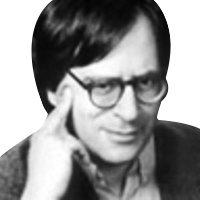At times, a mediocre film can prove instructive.
Even for a biopic, a notoriously undistinguished genre, Angela Robinson’s Professor Marston and the Wonder Women (which premiered at the Toronto International Film Festival) is largely dismissible. The dialogue—the script was also written by Robinson—is often either laughably campy or earnest, the music surges heavy-handedly in intensely dramatic scenes, and the actors, particularly the bland Luke Evans in the title role, seem palpably uncomfortable throughout most of the film.
Yet despite Professor Marston’s clunky construction and cinematic clichés, it’s a supremely well-intentioned film that at least attempts to discuss the social and political context of pop culture.
The film’s agenda involves revealing the roots of Wonder Woman in a milieu advocating feminism and free love in the early part of the 20th century. Even though William Moulton Marston—the professor and creator of the wildly successful comic book—is ostensibly the focus of the film, his presence pales in comparison to the two women in his life. Marston’s wife Elizabeth (Rebecca Hall) and Olive Byrne (Bella Heathcote), he and his wife’s off-and-on sexual partner and soulmate, provide the film’s primary narrative tension. Marston himself comes off as another stock male sexual guru, not unlike Prof. Alfred Kinsey, who was played by Liam Neeson in Bill Condon’s Kinsey or Dr. William Masters, the neurotic sexologist played by Michael Sheen in the onetime hit Showtime series Masters of Sex.
Like Kinsey and Masters, Marston’s theoretical acumen sometimes outstrips his meager interpersonal skills. When the film opens in the ’20s, Marston, a Harvard Ph.D., is teaching psychology to young female Radcliffe students. He tends to slot most of humanity into the categories made famous by his DISC theory, notions promulgated in his treatise Emotions of Normal People, a book that suggests that four personalities evincing “dominance, inducement, subjugation, or compliance” predominate in the general population.
As the historian Jill Lepore demonstrates in The Secret History of Wonder Woman, the spirited women in Marston’s life, influenced by the sexual revolution and feminist activism of their day, cooperated with him as equals as he embraced erotic experimentation. A committed feminist, Elizabeth snubbed conventional mores and, at least in Robinson’s version of events, swears like a sailor. (Although the etymology of the word “motherfucker” apparently dates back to the 14th century, it seems unlikely that an American faculty wife from the 1920s would have used the term in casual conversation as Hall’s incarnation of Elizabeth does in the film.) Olive, Marston’s former student, seems superficially more genteel and sheltered. But Olive, the niece of feminist and birth control pioneer Margaret Sanger, eventually proves as eager to shed her inhibitions—if not more so—than her older mentors.
Of course, less high-minded viewers may be more attracted to the film’s depictions of group sex and S&M, pursuits that Marston came to believe were essential to his revolt against bourgeois propriety. Unfortunately, the group grope between Olive, Elizabeth, and Marston that approximates an “orgy” is a demure soft-core misfire. The ménage á trois’ discovery of sadomasochism is even more risible. The shenanigans resemble a PG-rated version of The Story of O. Marston engages in these practices as an adjunct of his psychological theories; he fervently believes that the various modes of S&M correspond to the categories enumerated in his vaunted DISC theory. Elizabeth Marston’s observation that her husband is “justifying the whims of [his] cock with science” seems accurate enough. But Robinson’s film can never quite decide if it wants to be an earnest feminist tract or a mildly titillating homage to kinkiness among the intellectuals.
While Marston is obviously more celebrated as the creator of Wonder Woman than as a psychologist or proponent of free love, the film actually gives fairly short shrift to the comic book’s legacy. A framing story hints at prudish objections by citizens’ groups to the character and her sexual exploits during the 1940s. And shots of copies of Wonder Woman comic books heaped upon bonfires are doubtless meant to resonate with audiences at a time when the threat of censorship looms large again. Still, Professor Marston and the Wonder Women is too confused to score any coherent political points. Rebecca Hall’s confident performance as the exuberant, but brittle, Elizabeth Marston is the movie’s one crowning glory. Otherwise, despite an intriguing premise, this is not a particularly wondrous biopic.






